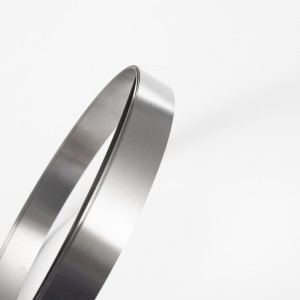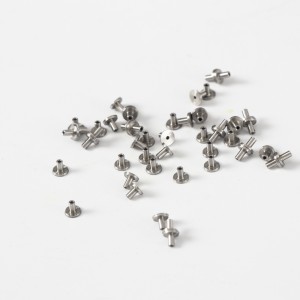


Abstract: Nickel plays a very important role in our daily life. Although not as well-known as oil, coal and iron ore, the daily use of nickel influenced by its hard but malleable and malleable structure has many benefits to human life.
The nickel itself comes from the remains of plants or organisms that have been buried underground for millions of years, and is a part of metal-like mining products. The silvery nickel was originally thought to be an impurity in copper, but later became a high-value independent metal after research concluded that nickel could be found in meteorites.
(1) Stainless steel and coins
1, stainless steel manufacturing
The first use of nickel in everyday life is as an ingredient in stainless steel. Stainless steel furniture generally uses nickel because of its rust-proof properties.
Stainless steel is usually made of iron ore mixed with nickel and chromium, so it is not easily oxidized by water and air. This is why stainless steel does not rust as easily as ordinary iron. As a result, kitchen utensils such as forks and spoons are often made of nickel alloys.
2. Coin making
In addition to being used to make stainless steel, coins are also made of nickel. Indonesian coins are usually made of nickel because it is tough and easy to be shaped. It is well known that Indonesia has two currencies, coins and bank-notes. Some coins circulating in Indonesia are made of nickel.
Compared with aluminum, the material looks denser and heavier. In 2010, Bank of Indonesia introduced a nickel-based coin currency: the Rp1000 denomination.
(2) Alloys in steel and automobile frames
3. Mixed in steel
Steel is a mixture of various metallic elements, mainly iron. High quality steel requires a mixture of nickel content. The advantage of nickel in steel alloys is that it makes the mixture harder than aluminum alloys.The nickel content gives the steel good strength compared to steel mixed with aluminum alone. Nickel alloys also make steel resistant to corrosion, which pure steel cannot do. This structure is commonly used in building materials and railways.
4. Car frame manufacturing
The next use of nickel in everyday life is to make car frames. The nickel content in the car's frame makes the result look shinier and less susceptible to rust. It makes the car frame more durable because it doesn't break down quickly. You usually see the wheels, bumpers and tailpipes on cars looking so shiny because of the amount of nickel used in the construction of the car frame.
(3) Rechargeable batteries, wire manufacturing and rust-proof coating
5. Rechargeable batteries
One of the most important uses of nickel in everyday life is as a material for making batteries. Nickel-based batteries include rechargeable batteries, different from disposable galvanic cells. These batteries are widely used to power electronic devices. Nickel batteries are known as nickel-cadmium (Ni-Cd) and nickel-metal hybrid (NiMH) batteries.
6. Wire production
Nickel is rust-proof and can also be used to make wire mixtures. In this case, for example, the formation of aircraft turbines. Nickel wire can also be used as a laboratory tool with a good heat conductor. That's because the element nickel is also a good conductor of heat. This certainly confirms the importance of nickel in daily life.
7. As an anti-rust coating
Nickel can also be used in daily life as a mixture or anti-rust coating. The element nickel is indeed ideal for use as a mixture or rust-proof coating. Nickel-plated metal is hard to damage because it is rust-proof. In addition, nickel has a shiny effect that makes the metal look more attractive. As a result, nickel is widely used as a coating, especially in the food industry. Because of its strong rust resistance, nickel is often used as a coating for various weapons produced by well-known manufacturers.
Post time: Feb-17-2022